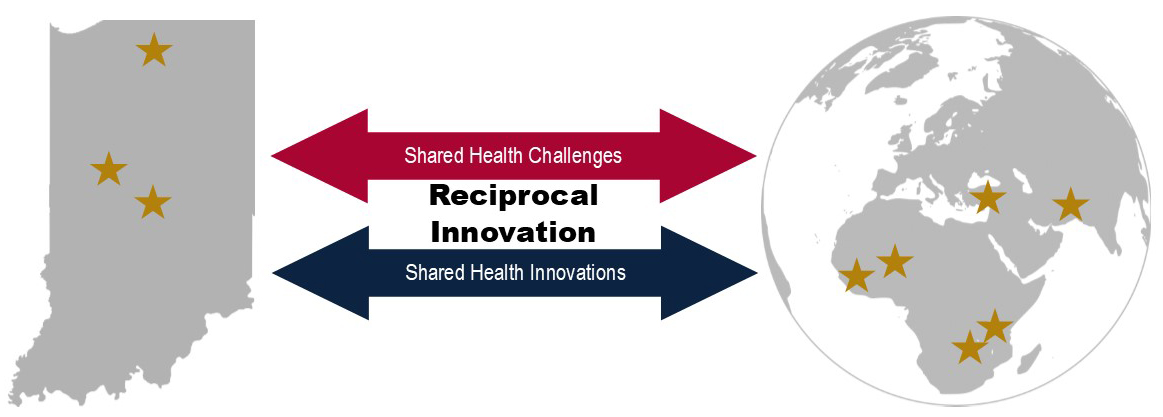Global Health Innovation Exchange
INDIANA CLINICAL AND TRANSLATIONAL SCIENCES INSTITUTE
The Indiana CTSI intuitions (Indiana University, University of Notre Dame, and Purdue University) established a new reciprocal innovation program to design, demonstrate, replicate, and rapidly disseminate health innovations developed through collaborations with our partners in low- and middle-income countries (LMIC). Beginning in 2016, global health pilot grants and reciprocal innovation grants are funded to support the research of Indiana CTSI investigators and their international partners.
What is reciprocal innovation?
Reciprocal innovation builds on the concept of ‘reverse innovation’, a process of bringing healthcare innovations and technologies designed and tested in under-resourced countries around the world back to developed countries such as the United States to address important health challenges. These ‘reverse innovations’ are attractive because they are often seen as more cost-effective; easier to replicate, scale, and sustain; require minimal infrastructure; and can be tailored to local needs. However, reverse innovation implies a unidirectional process that does not continue to engage global health stakeholders in refining and implementing these approaches.
Reciprocal innovation evolves the concept of reverse innovation in order to create a bi-directional and iterative exchange of a technology, methodology, or process between at least two countries, one lower- or middle-income country and one high-income country, to address a common health challenge. This bi-directional exchange allows us to address a common problem between countries by the same innovation and provide mutual benefit to both sides. Lessons learned are continually shared throughout the process to suit the needs and infrastructure of each country.
Reciprocal Innovation Grants Program
Beginning in 2016, global health pilot grants and reciprocal innovation grants are funded to support the research of Indiana CTSI investigators and their international partners. The Demonstration Grants fund up to (2) awards up to $50,000 each to support high impact solutions that provide reciprocal benefit to Indiana and our LMIC partners, while the Planning Grants fund awards up to $10,000 to support planning and training activities that will lead to applications for projects demonstrating reciprocal innovation. The repository below highlights successful examples of reciprocal innovation projects. For further details and grant summaries, simply click on the project title.

